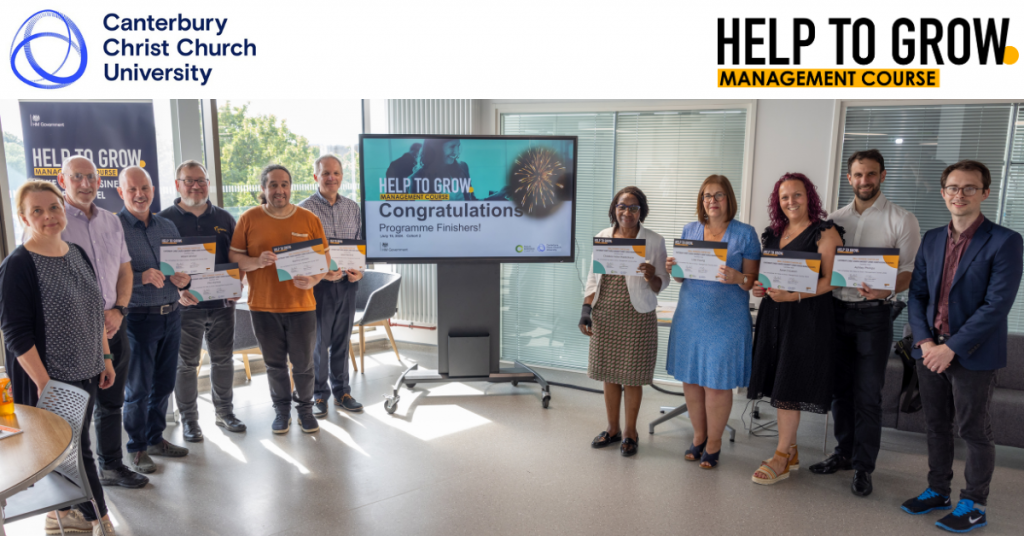Welcome to our new ‘Sharing Insights’ blog series, offering a unique opportunity to demonstrate the skills and expertise of some of our academics at Canterbury Christ Church University (CCCU)- opening new avenues for communication with businesses and a broad range of stakeholders.
Does your organisational strategy need work? Maybe you are a business that has grown rapidly and designing a new strategy has become a priority for future planning?
The development of new organisational strategy is the opportunity to shape and direct the future of an organisation in collaboration with the employees and others. Consideration of the strategic purpose of an organisation is vital to this process. It has been said that this will be the decade of stakeholder capitalism, a concept that encompasses the idea that organisations that fail to embrace the needs of their wider stakeholders rather than solely shareholders or funders, will fail to thrive.
Indeed, creating a new business strategy that does not include a sense of the purpose of an organisation, the why?, already seems to be missing the prevailing mood of the wider population. A focus on the social and environmental impacts of organisational actions and activities has become the “mission-core” of strategic planning. This includes understanding the organisation’s externalities, the unpriced impacts, such as air pollution or warmer seas due to industrial polluting activity and adjusting the mission and vision to move strategic action away from operations that have these negative effects for communities and other stakeholders.
Strategic collaborative relationships that encompass the common good, with increased public engagement supported by meaningful action, such as the recent Canterbury Christ Church University civic pledges, are of increasing importance to the strategic direction of organisations. The stated strategic intent of your organisation is also a key recruitment tool, and to attract the best talent to work for your organisation may demand a clear sense of social purpose, now highly valued alongside salary. For those in sectors with recruitment and staff retention challenges, a collaborative approach to the development of strategy can provide existing employees with a renewed sense of purpose and agency as well as an appreciation of shared values.
Importantly, organisations that are striving to differentiate their activities will seek alignment between their stated strategic intent and the values important to their customers or service users to drive the uptake of their product or service. Developing a new strategy, or renewing an existing strategy, with a consistent perspective on purpose can be necessarily complex and difficult. However, adopting a smart, structured approach, supported by evidence-based decision making, future thinking and collaboration can be a catalyst for growth and positive impact.

If you are a small-medium business owner and are interested in joining our future Help to Grow: Management programme commencing January 2025, then please get in touch via HTGManagement@canterbury.ac.uk
If you are interested in facilitated workshops, consultation or CPD for strategic planning with purpose then please contact kate.keane@canterbury.co.uk
BIO
Kate Keane is a Senior Lecturer in Work Based Learning at the Christ Church Business School. Her teaching ranges from collaborative strategy, effective change, project leadership to the provision of masterclasses on shaping enterprise vision and AI for SME’s. She is currently the Programme Director for the Help to Grow: Management course delivery at CCCU. Prior to joining CCBS Kate held senior project positions in transport infrastructure and banking organisations delivering major investment projects.
Get more information:
University Profile: Mrs Kate Keane – Canterbury Christ Church University
Connect:
LinkedIn: (30) Kate Keane | LinkedIn
 Connect
Connect Maddie Pitchacaren
Maddie Pitchacaren 1060
1060


